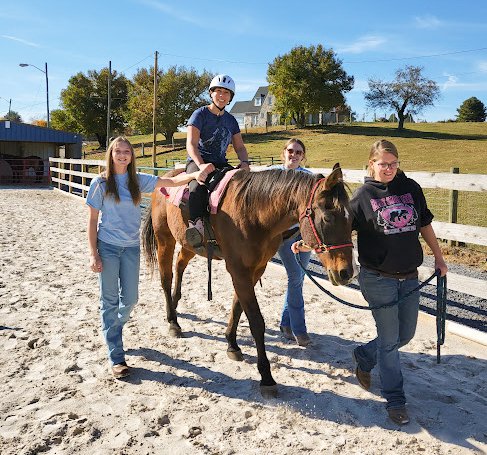Newbery Medal-winning children’s author talks heritage, inspiration, and the love of reading.

Meg Medina, the 2023-2024 National Ambassador for Young People’s Literature, is a Cuban American author who writes for readers of all ages. Her middle-grade novel Merci Suárez Changes Gears received a Newbery Medal and was a New York Times Book Review Notable Children’s Book of the Year
When she is not writing, Meg Medina works on community projects that support girls, Latino youth, and literacy. She lives with her family in Richmond, Virginia. She’ll be at The Virginia Festival of the Book on March 25
Konstantin Rega: So you’re the 2023-24 National Ambassador for Young People Literature. How does that feel?
Meg Medina: You know, it’s a huge honor to be honest with you. And it’s also a really big responsibility. I’m sorta being asked to talk to kids across the country, kids, their families, and their communities about their reading life and to encourage them in their reading and writing life.
And that’s a big job, you know, especially right now. After coming out of this pandemic phrase, helping them regroup, helping them use every tool we have to feel better, to feel stronger, to have a voice is so important. The idea of voice, the idea of story, the idea of connecting families around a story and the things we read, that really matters to me. It really does.
So were you a big reader when you were a kid?
I was a reader, yes. But when I was growing up, of course, there were not many Latino characters in books, right? So I read a lot of Nancy Drew and Judy Blume books and all of those things. I come from a family of people, Cuban immigrants, who use stories to tell the trials of their own lives. What their lives had been in Cuba, what had come before me. So stories were always swirling around. And I came sort of naturally to words and books and their power.
Later in life when I got to college and beyond, I became aware of authors, of Latino authors writing from many different countries and from different perspectives. It was really exciting. And it was this first moment of seeing people that look like my family members, who ate our food, who spoke our language, who had the same sort of economic status. So suddenly, I felt very seen and I drank that literature up immediately.
So, one of the joys of the work that I do now, writing narratives that center Latino people, is the notion that I am adding to a body of work that makes it possible for kids not to have to wait till adulthood, right, to see their families completely validated and mainstreamed and part of the American story. Not others, but just part of the larger American family.
Where did your characters, Merci Suarez, come from?
I have three kids who were born in Florida, but raised in Richmond. (I lived there for 10 years.) I’d grown up in New York with my mother, after leaving Alexandria and my father. However, her dream was always to live in a little house in Florida. If she couldn’t be in Cuba, she wanted to be in a little house in Florida, with her sisters in one house and her parents and another. All close like.
When working on my book, I thought that the first experience kids have with loss is often their grandparents. And so I wanted to just look at that. All of my work, in one way or another, sort of explores the harder spaces of growing up. And in Merci, it was this combination of all this love and support in this big family while they faced this problem together. And all while she’s living through middle school, that seemed like a perfect soup.
Middle school’s a sort of purgatory of growing up.
Yeah, for most people, if you say, “your middle school years,” a shutter still jolts through them. It’s just a really hard time. And growing up can be excruciating. So just giving voice to that, giving a place on a page where kids can see that and see characters emerge from that, bumped and bruised but emerged. I think it’s a very important part of reading, especially for young people. It gives a window into people, into human beings: how we solve problems, how we relate to each other. And I think that’s the thing about growing up. Figuring out how you relate to yourself and how you relate to other people.
And why did you decide to move to Virginia of all places?
My husband was working for Walgreens, and they were opening markets in Virginia in the late 90s. So we had the opportunity to either go to Charlotte, North Carolina, or Richmond, Virginia. I decided that I wanted to live in a capital city. And it was close to D.C. as well. A city that I enjoyed visiting a lot.
And it worked out. I mean, at the time, I was a little nervous because there was not a big Latino population here. And I worried about raising my kids in a place that didn’t have a lot of similar cultural markers to ours. With that said, they had a good education, had lovely neighbors, all of that. It was a really beautiful place to raise them. And now, of course, it feels like home, like I was actually born here. And it just feels like a lot of artists are moving in, a lot of really interesting people are moving in. It just feels like an artful place, a vibrant place.
Besides the Ambassadorship, you also did a Virginia Center for the Creative Arts retreat.
Yes, I just finished it. Such a joy. I’ve never been to an artists colony in that way. And so it was really an incredible gift to see other artists from all over the country converge in one place to make work.
When you’re first trying to give voice to the idea you’re shaping, it’s not very clear yet, it’s bumpy, and it’s ugly. So it was really a gift to be able to sit with a collage artist and really talk about how we piece things together, how we create.
I only went for a week. But there are people who go for like three and four weeks. I think it is an unsung jewel in Virginia, I hope. And I went on a fellowship for artists from underrepresented backgrounds, and I hope that they continue that moving forward. Just to encourage more voices there. And it was really what I needed. And I’m so grateful for it, really so grateful for that experience.
So with your writing, where do you think you’re going next with your books? What do you want to tell readers?
My work always sort of sits at this intersection of girls growing up and what role does culture play in how they grow up? And how do they see themselves? I’m not tired of looking at that, through different age lenses. So I’ll continue to do that.
Right now, I’m working on a middle grade fantasy, that’s spooky. I don’t usually write fantasy. I read, often, contemporary work. So this was new for me: because I wanted to write in a form that was unfamiliar, I wanted to learn something new. And I wanted to scare myself.
And then the other news is that my novel, Yaqui Delgado Wants to Kick Your Ass (it gets banned all the time) is 10 years old. So it’s coming out next month as a graphic novel. Mel Valentine Vargas is the illustrator and did a great job. I feel like they got to the heart of the story and brought something new to a completely new format. So that excites me, to see my story come out in another way. And another way that another generation and another type of reader can connect with.
And lastly, you’re going to be at the Virginia Festival of the Book. What will you be talking about there?
I’ve presented at that festival a couple of times very early in my career; they were very kind to invite me. I think this year I’m doing one panel or something. But that’s another place that I love. It’s a wonderful festival. And Charlottesville at that time of year is really lovely. I’m really looking forward to it, and this time wearing the hat of the ambassador. To represent Virginia in this way really feels like a huge honor. We have a lot of really great children’s authors who live in Virginia. So it feels nice to be a part of that community.
Find her books at The Bookshop.









